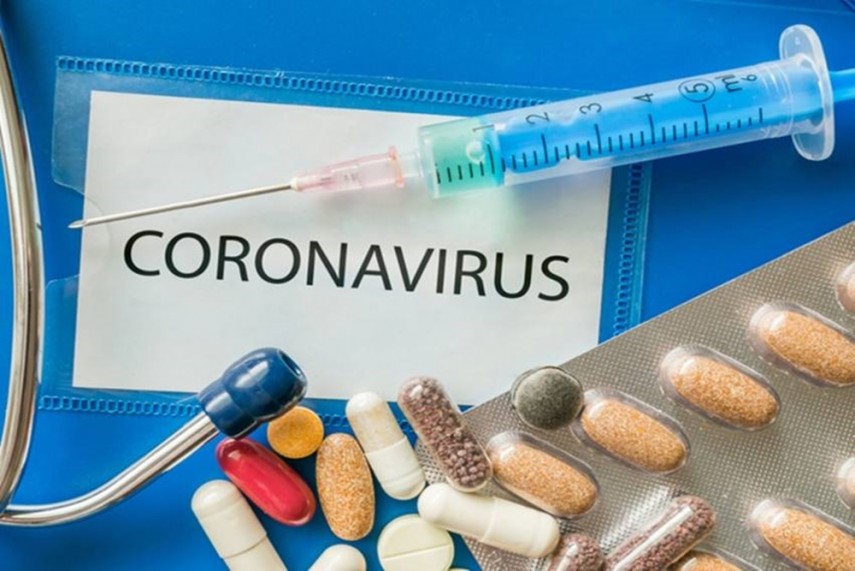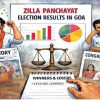Goa is abuzz with excitement as vintage bike and car owners, users, collectors and fans are decking […]

IVERMECTIN CONTROVERSY
May 15- May 21, 2021 May 14, 2021RICARDO Joseph D’souza of Nagao Arpora Baga Citizens Forumn shares these notes on the Ivermectin controversy….
The latest data on May 10, 2021 on drug Ivermectin shows that it works incredibly well taken in advance and early stages. Ivermectin prophylaxis is generally used for parasitic infections also in Africa. Ivermectin for Covid-19 (SARS-CoV-2) has seen 55 trials, 445 scientists, 17,730 patients, 28 randomized controlled trials.
In a meta analysis of 55 studies 100% of 35 early treatment and prophylaxis studies report positive effects (96% of all 55 studies). 26 studies show statistically significant improvements in isolation. Heterogeneity in Covid-19 studies arises from many factors including Treatment Delay: The time between infection or the onset of symptoms and treatment may critically affect how well a treatment works.
For example an antiviral may be very effective when used early but may not be effective in late stage disease, and may even be harmful. Efficacy declines as a function of treatment delay. Other medications might be beneficial for late stage complications, while early use may not be effective or may even be harmful. Oseltamivir, for example, is generally only considered effective for influenza when used within 0-36 or 0-48 hours (McLean, Treanor).
Patient demographics: Details of the patient population including age and comorbidities may critically affect how well a treatment works. For example, many Covid-19 studies with relatively young low-comorbidity patients show all patients recovering quickly with or without treatment. In such cases, there is little room for an effective treatment to improve results (Lopez-Medina).
Effect measured: Efficacy may differ significantly depending on the effect measured, for example a treatment may be very effective at reducing mortality, but less effective at minimizing cases or hospitalization. Or a treatment may have no effect on viral clearance while still being effective at reducing mortality.
Variants: There are thousands of different variants of SARS-CoV-2 and efficacy may depend critically on the distribution of variants encountered by the patients in a study.
Regimen: Effectiveness may depend strongly on the dosage and treatment regimen. Higher dosages have been found to be more successful for Ivermectin (Hill).
Method of administration may also be critical (Guzzo) and show that the plasma concentration of Ivermectin is much higher when administered with food. Many Ivermectin studies specify fasting, or they do not specify administration. Fasting administration is expected to reduce effectiveness for covid-19 due to lower plasma and tissue concentrations. Note that this is different to anthelmintic use in the gastrointestinal tract where fasting is recommended.
Treatments: The use of other treatments may significantly affect outcomes, including anything from supplements, other medications, or other kinds of treatment such as prone positioning.
Use early in the pandemic was proposed by Kitasato University including the co-discoverer of Ivermectin Dr Satoshi Omura. They requested Merck conduct clinical trials of Ivermectin for Covid19 in Japan, because Merck has priority to submit an application for an expansion of Ivermectin’s indications. Merck declined.
Conclusion: Ivermectin is an effective treatment for covid19. The probability that an ineffective treatment generated results as positive as the 55 studies to date is estimated to be 1 in 23 trillion. As expected for an effective treatment, early treatment is more successful. With an estimated reduction of 79% in the effect measured using random effects meta –analysis. 80% and 96% lower mortality is observed for early treatment and prophylaxis. Statistically significant improvements are seen for mortality, ventilation, hospitalization, cases, and viral clearance. The consistency of positive results across a wide variety of heterogeneous studies is remarkable with 96% of the 55 studies reporting positive effects (26 statistically significantly in isolation).
Come to your own
conclusion.














